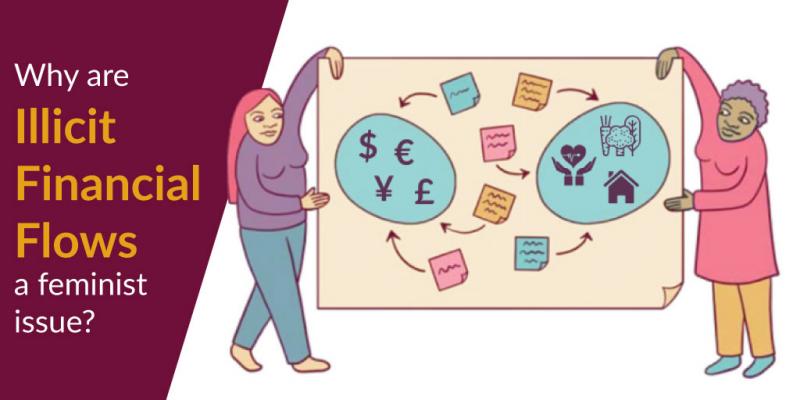What if we had trillions of public dollars for all people and communities hit hard by the Covid-19 crisis? For the health systems on the verge of collapse? For those who have just lost their income but are not entitled to any state support because their work is too precarious, seasonal or illegalized? For all of us doing unpaid care work and building solidarity initiatives to sustain our loved ones, our neighbours and communities?

This money exists and it doesn’t come from charity.
It is the money and capital moved by corporations and wealthy elites to places (most often in the global North) that offer secrecy and maximum profit.
In some cases, the origin of that money is illegal (for example, resulting from corruption or illegal arms trade) and in others it is the result of economic exploitation and tax abuse tolerated and promoted in the name of attracting investments. These “hidden” capital transfers are known as illicit financial flows. Money that could have been utilized for social services and social security networks, for public health and education, for community initiatives and civil society - including feminist and gender justice organizations and movements that are often at the forefront of emergency responses.
These illicit financial flows have been estimated by the World Bank at $1-1.6 trillion per year. To comprehend how much money this really is, consider that the global foreign aid, as estimated by the OECD, is US$135 billion. Since the 1970s African countries alone have lost over $1 trillion in this capital flight, while combined external debts are less than $200 billion. But illicit financial flows are relevant not just to comprehending the neo-colonial world order, but our everyday resources for life as well.
The Covid-19 crisis is a critical time to take a deeper dive into what has led some public health systems to crumble through decades of privatization and austerity, and others to be underfunded to begin with.
Global movements of capital shape our everyday life - Will I have a bed in the ICU? Will I be compensated for income loss? Will my community organization be able to access emergency funding? It is a critical time that we claim those “hidden” resources from wealthy elites back - for the people and communities, for the public good and for social and economic justice.
We know that women bear the brunt of tax injustice and illicit financial flows. Less taxation of large corporations often increases the tax burden on basic commodities, which disproportionately impacts impoverished women. Less tax revenue also means less funding sources for critical public services that as they fail to deliver, only increase the burden of unpaid care work. Loss of public revenue is one of the key barriers for states to realize gender equality and to mobilize the maximum available resources for the fulfillment of women’s rights.
Feminists, it’s time to decide where public resources go!
-
Read the introductory brief Illicit Financial Flows: Why we should claim these resources for gender, economic and social justice and share it with your networks.
-
Can you meet with others offline or online?
We know understanding IFFs is not a sexy feminist issue, but it should be! Our new facilitation guide is a popular education tool for learning about Illicit Financial Flows from a feminist perspective. The Facilitation Guide was co-created by AWID, Akina Mama Wa Afrika, Mesoamericanas en Resistencia, Oriang, PKKK and the Ivanovo Center for Gender Studies. It contains a step-by-step methodology for an in person two-day workshop by feminist and social justice groups, and some activities can be adjusted for an online activity. If you are a popular educator or trainer, this is for you!
Download the facilitation guide
Also available in Russian -
In the meantime as we tackle IFFs, the current Covid-19 pandemic also requires an immediate, strategic and collective response that is broad-based and feminist-led, to support women, trans and gender-diverse people who hold our economies and bear the brunt of this crisis.
Join us on May 21st to organize and mobilize a #FeministBailout campaign.
Register for our Zoom session
One day we will wake up in the post-Covid19 world
Big business and transnational corporations will push massively for state bailouts and public resources; indeed, they already do. Claiming the public resources lost in illicit financial flows is essential to reorienting our economies to work for the people. The future must be public - and it must be feminist.
